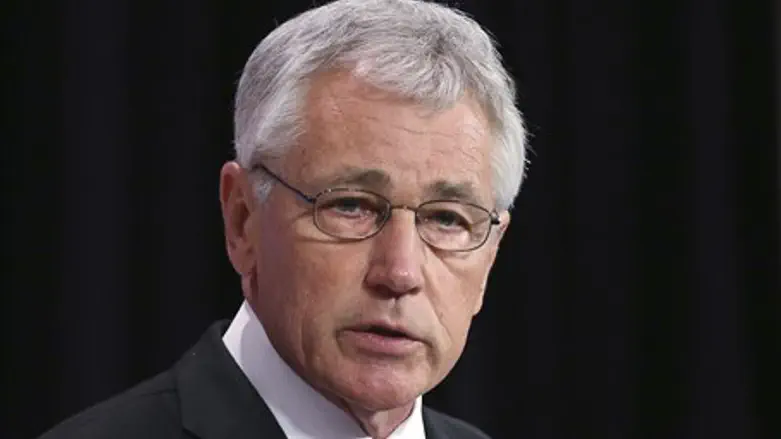
Former U.S. Defense Secretary Chuck Hagel criticized President Barack Obama on Friday over his failure to act in Syria after he warned President Bashar Al-Assad that the use of chemical weapons would be crossing a “red line”.
Speaking to the Foreign Policy magazine, Hagel said he believed Obama dealt a severe blow to the credibility of both Obama and the United States by not taking action after Assad used chemical weapons against Syrian civilians.
“Whether it was the right decision or not, history will determine that,” Hagel, who resigned a year ago amid reports of disagreements with Obama, told the magazine, but added, “There’s no question in my mind that it hurt the credibility of the president’s word when this occurred.”
In the days and months afterward, Hagel said, his counterparts around the world told him their confidence in Washington had been shaken over Obama’s sudden about-face, and added he still hears complaints to this day from foreign leaders.
“A president’s word is a big thing, and when the president says things, that’s a big deal,” he told Foreign Policy.
Hagel cited the episode as an example of a White House that has struggled to formulate a coherent policy on Syria, holding interminable meetings that would often end without a decision, even as conditions on the ground worsened and the death toll grew steadily higher.
Similar comments were made by Leon Panetta, who preceded Hagel as Defense Secretary.
"By failing to respond, it sent the wrong message to the world," Panetta said in a book released last year, adding, "President Obama vacillated, first indicating that he was prepared to order some strikes, then retreating and agreeing to submit the matter to Congress.”
"The result, I felt, was a blow to American credibility. When the president as commander in chief draws a red line, it is critical that he act if the line is crossed. ... Assad's action clearly defied President Obama's warning," wrote Panetta.
Looking back on his tenure, Hagel told Foreign Policy that he remains puzzled as to why some administration officials sought to “destroy” him personally in his final days in office, castigating him in anonymous comments to newspapers even after he had handed in his resignation.
Days after his resignation was made public, Hagel rejected accounts that he was forced out and said his stepping down was a mutual agreement with the president.
Although he did not identify her by name, Hagel’s criticisms were clearly aimed at Obama’s national security advisor, Susan Rice, and some of her staff, noted Foreign Policy. Hagel’s former aides, and former White House officials, say the defense secretary frequently butted heads with Rice over Syria policy and the U.S. military prison at Guantanamo.
The White House declined to comment after being told about Hagel’s comments regarding the fallout from Obama calling off strikes against Damascus, the absence of a clear policy on Syria, and his treatment by the administration.
But a senior administration official, who spoke on condition of anonymity, told Foreign Policy that Obama was not ready to go forward with the military operation in Syria in 2013 without consulting Congress first and it endorsing his decision. The official also told the magazine that the final outcome of Obama’s decision opened the way for the diplomatic deal brokered by Russia that saw the Assad regime hand over its declared chemical weapons stockpiles.
“The end result of all this is a Syria that’s free of its chemical weapons program,” the official said.
The senior official also insisted the president has a clear strategy to defeat the Islamic State (ISIS), relying on U.S.-led air power and the training of local forces while pushing for a diplomatic bid to end the civil war in Syria and negotiate Assad’s exit.
